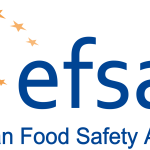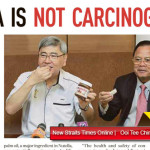Malaysian Palm Oil Industry: Our Stand On The Nutella Ferrero Report and Misinformation about Palm Oil and Cancer
The palm oil industry is regularly confronted by misinformation which is then absorbed by the media and churned into a frenzy of inaccurate news articles and opinion pieces, designed ostensibly to inform and educate, but achieving neither objective. Unfortunately, ever so often, such misinformed frenzy is unsupported by facts. The recent hype on Nutella and the quoted cancer health concerns about palm oil is a classic case in point.
First let us, the Malaysian Palm Oil Industry, take the opportunity to congratulate Ferrero S.p.A. Italy, the manufacturers of Nutella, the chocolate spread millions of people have grown up with, on their 70th anniversary celebrations. We would especially like to congratulate Ferrero S.p.A. for their bold move in stating to the world that their premier product depends on Malaysian palm oil for its taste, quality and consumer acceptance.
Ferrero went the full mile in all their raw materials sourcing, which included substantial quantities of Malaysian palm oil. This included the procurement of certified sustainable palm oil with premiums voluntarily paid for and quality enhanced palm oil with near zero content of 3MCPD and GE.
Under normal circumstances Ferrero would have been congratulated and celebrated for their commitment to always producing consumer products of the highest quality, using raw materials of unquestionable repute. Malaysian palm oil is thus proud to be part of a major quality assured global consumer brand and product that is so iconic it is the eponymous chocolate spread, enjoyed in many parts of the world, not just Europe.
The underlying issue, headlined in the press report about palm oil and cancer, relates to the occurrence of the contaminants, 3MCPD and its glycidiyl esters (GE) in all oils and fats, and we emphasize this again, in all oils and fats. All oils and fats producers and the food industry, have known this for more than a decade now. It occurs in olive, soya, rapeseed, corn, sunflower and in palm oils as well. This knowledge triggered a lengthy period of evaluation not only in Europe but also at our own Malaysian Palm Oil Board (MPOB) laboratories. MPOB has previously published its findings in scientific journals and acknowledged the higher content of these compounds in palm oil compared to other oils and fats. The reasons for their occurrence are several fold, starting from cultivation due to soil conditions through to final processing and refining.
As a first step and since palm oil is used in several leading infant food formulations, the occurrence of these contaminants was voluntarily reduced or eliminated in palm oil intended for infant formulations. The better known global infant formula manufacturers use such premium palm oil fractions in their infant formulas. This was acknowledged in the European Food Safety Agency’s (EFSA) report cited by the media.
When the EFSA report was made public in mid-2016, Malaysian palm oil industry initiated a focused dialogue among its plantations, millers, refiners and end users. Collectively we agreed to work towards adoption of production and processing technologies that aim to reduce or eliminate these contaminants in palm oil. To this extend the matter was highlighted to the Malaysian cabinet through the Ministry of Plantation Industries and Commodities. Honourable Minister Datuk Seri Mah Siew Keong correctly impressed upon the cabinet the urgency and need to innovate and reduced / eliminate these contaminants in palm oil. A special allocation to assist in such technology adoption was granted through the Malaysian government. We are currently executing measures to tackle these contaminants and possibly be ahead of all other edible oils in eliminating their occurrence in Malaysian palm oil.
The current media reports create an unwarranted frenzy about palm oil and cancer and we respond to these allegations as follows:
- We assessed if since mid-2016 when the EFSA report was released, what impact if any it had on the palm oil industry and palm oil imports to Europe. In general, European food manufacturers, oils and fats refiners and producers have indicated that for the largest part, the EFSA report has been accepted for its regulatory context and they have begun to source all oils and fats and not just palm oil, which are reduced in these contaminants.
- Neither EFSA nor any other national food safety authority has advocated or suggested a ban on the consumption or use of palm oil or any other vegetable oil for that matter. The market that was most diverged from the regulatory context of the EFSA report was Italy, home of Ferrero’s operations, where it was unfortunately and inaccurately categorized as a “palm problem” instead of an issue that affects all refined vegetable oils, including olive oil.”
- The European Food Industry, which is highly regulated and observes the highest standards of safety, has not moved to remove palm oil following the release of the EFSA report, but maintains that the regulatory context of EFSA is relevant.
- Is the Malaysian palm oil industry concerned about a possible future impact of EFSA’s opinion on palm oil industry? We have taken the recommendations from EFSA seriously. Definitely more seriously than other oils and fats producers around the globe and in 2017 empowered by the special R&D grant from the government, we will aim to reduce or eliminate these stated contaminants from Malaysian palm oil.
- Our industry succeeds only when consumers trust that what they buy is healthy, sustainable and, above all, safe. The safety and quality assurance of our products remains of the highest priority. The palm oil we sell to any part of the world is subject to the highest standards of quality and safety controls. With respect to these contaminants that are found in all vegetable oils, we will institute measures for close monitoring and take specific actions to reduce the levels of 3-MCPD esters and glycidyl esters (GE). The Palm Oil Industry is already actively engaged with the European association FEDIOL, in addressing the level of contaminants in all fats and oils. In the near future, palm oil produced in Malaysia will be free of these contaminants. It affects all refined vegetable oils and is an issue that the entire food industry must take extremely seriously.
- We also have concerns that EFSA itself has not stepped in to clarify the misinformation surrounding palm oil, whereas the media is quoting extensively, EFSA’s evaluation of the underlying risks associated with these contaminants.
- We wish to reiterate that the Malaysian palm oil industry views the occurrence of the contaminants 3 MCPD esters and GE with much concern, although the actual risk to human health has yet to be clearly defined, and appears small in light of the accumulated data of potential exposures through foods. Nevertheless, our industry is urgently innovating and improving processing technologies for palm oil that should result in the reduction or elimination of these compounds as explained above.
- Meanwhile, we ask refrain from reference to palm oil and its association with cancer. There is no scientific evidence for these accusations. On the other hand, palm oil is endowed with naturally occurring nutritional minor constituents including the tocotrienols, carotenes and phenolics. These have proven nutritional benefits including in stroke prevention, as antioxidants and even as anti-cancer agents. Some of these compounds are being tested for their potential anti-cancer and health benefits. These are work in progress and it would amount to “killing the goose that lays the golden egg”, if the media continues to vilify palm oil based on unproven evidence.
- Lastly, we urge that if you have any questions or concerns on this subject, please do not hesitate to contact our experts at MPOB or MPOC. We are fully supportive of responsible media and news reports that seek to inform and educate the public at large. In the current context, the information provided by the media has been inaccurate and misleading. The many nutritional benefits of palm oil are well documented but sometimes not so well known. We would be happy to provide such scientifically robust information for your use.
Thank you.
Dr. Kalyana Sundram
Chief Executive Officer, MPOC
kalyana@mpoc.org.my
Dated: 19 January 2017










Leave a Reply